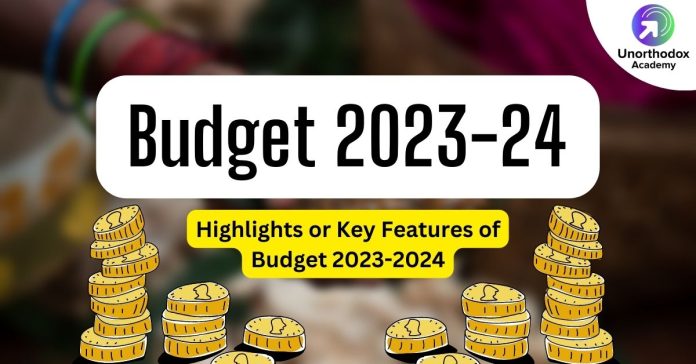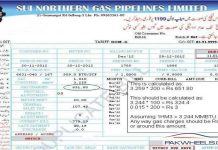Budget 2024-2025 in Pakistan: This memorandum provides a brief overview of the economy of Pakistan and the main changes proposed in the Finance Law 2024. All proposed changes to the Finance Act 2024 will come into effect on July 1, 2024, subject to approval by the National Assembly and the approval of the President.
Pakistan Budget 2024-2025
KEY ECONOMIC INDICATORS
| Economic Survey 2022-23
The geopolitical situation, difficult financial environment, and high inflationary pressures have all had a substantial impact on the prospects for global growth. All these factors posed significant economic risks for Pakistan’s economy as well. Devastating floods and political unrest further aggravated the situation. Thus, FY 2024 has been a challenging year for Pakistan’s economy. In FY2022, Pakistan’s economy witnessed a high growth rate of 6.1 percent, however, it was unsustainable as it was largely driven by domestic demand, which was stimulated by expansionary fiscal policy and ended up with a high fiscal and current account deficit. Subsequently, the economy signaled excessive demand and overheating.
Pakistan’s economy still faces pressures from an uncertain global security situation, higher inflation driven by a spike in food prices, the bewildering stock market, perceptible contraction in large-scale manufacturing, lower than anticipated foreign inflows, and burgeoning absolute financing requirements. |
FY 22 – 23 | FY 21 – 22 | |||
|
GDP growth rate |
0.3% |
6.1% |
|||
| Per capita income – US$ | 1,568 | 1,766 | |||
| FDI (July – March) US$ million |
1,048 |
1,353 |
|||
| Consumer price index (July – March) |
28.2% |
12.2% |
|||
| Public debt (PKR billion) | |||||
| – Domestic | 35,076 | 31,085 | |||
| – Foreign | 24,171 | 18,157 | |||
| 59,247 | 49,242 | ||||
| Budget deficit –
%age of GDP |
4.9% |
7.9% |
|||
BUDGET 2024-2025 in Short wording
The Finance Bill 2024 did not bring any substantial change in the tax policy as all major revenue measures are aimed to tax already taxed sectors. Big businesses are subjected to higher rates of taxes with multiple taxation incidence. No serious amendments are made to reduce the tax gap attributable to undocumented sectors. Certain relaxations may result in the encouragement of an undocumented economy. By enhancing the rates of withholding taxes, the reliance on indirect taxation has further increased. All quick fixes aim to meet the shortfall in revenue targets without realizing their long-term adverse impact on overall economic growth.
No major tax relief has been given to lower-income groups including salaried class. Salient features of the amendments proposed in various fiscal laws are as under:
Salient features of Budget 2024-2025 in Pakistan
1. Progressive rates proposed for super tax on high earning persons ranging from 1% to 10%. In complete disregard to the commitment of seeking a one-time 10% super tax from certain sectors, the same has been extended to persons from all sectors having income in excess of Rs 500 million. Such higher rate of tax has been made perpetual thus substantially increasing the overall tax costs for the businesses.
2. Re-introduction of 10% final tax on bonus shares issued by companies.
3. A new concept of ‘additional tax on income, profits and gains with a capped rate of 50% introduced for extraordinary incomes arising from economic factors to be determined by the Federal Government for preceding five years. This concept is subject to serious legal challenges in view of the principles laid down by Higher Courts.
4. Enhancement of withholding income tax rates for suppliers, service providers, contractors and commercial importers.
5. Sales tax rate on retailers of textile and leather products enhanced from 12% to 15%.
6. Withdrawal of exemption of sales tax on edible products sold in bulk under brand names or trademarks.
7. Reduction in rate of minimum tax by 0.25% on turnover for listed companies.
8. Special tax regime for Small & Medium Enterprises extended to IT & IT enabled services. The turnover threshold enhanced from Rs 250 million to Rs 800 million. Five years’ income tax holiday introduced for certain Agro based SMEs.
9. Instead of completely eliminating the misused immunity from probe into sources of foreign remittances, the threshold of immunity has been enhanced from Rs 5 million to the equivalent USD 100,000 per annum.
10. Reintroduction of 0.6% advance tax on cash withdrawals by non-filers.
11. Definition of associates for income tax purposes expanded to include transactions with person resident in zero-taxed jurisdictions.
12. Exclusion of non-resident Pakistanis from the collection of 2% advance tax on the purchase of immovable properties.
13. 50% reduction in tax liability for three years for youth entrepreneurship. .Exemption on profits and gains on the sale of immovable property or share of special purpose vehicle to REIT scheme extended upto June 30, 2024.
15. Lower rate (20%) prescribed for banking companies in relation to income from additional advances to IT Sector.
16. Production, transmission and distribution of electricity to be excluded from the purview of federal sales tax and corresponding inclusion in Islamabad sales tax on services in accordance with the decision of National Tax Council.
17. Amendment in the definition of Tier-1 retailers to exclude jewelers and certain shop-covered area-based retailers.
18. The scope of FED on services is proposed to be enhanced by adding royalty and fee for technical services.
19. Granting the status of cottage industry to the freelance exporter of IT and IT-enabled services with consequential exemption from registration and filing requirements.
20. Exemptions provided in fiscal laws to erstwhile tribal areas extended till June 30, 2024.
21. The definition of ‘smuggle’ is proposed to be amended to enable the Customs authorities to conduct anti-smuggling operations anywhere within the territorial limits of the country.
22. Penalties leviable under Customs Act in connection with non-placement of invoices/ packing lists inside the import container or consignment are abolished.
23. Capped amounts of fixed duties and taxes on the import of old and used vehicles of Asian Makes above 1300 CC is proposed to be withdrawn.
SUPER TAX ON HIGH-EARNING PERSONS
Through Finance Act 2022, the Government introduced the concept of a Super tax on high-earning persons to be paid at the time of filing the tax returns. Slab-wise rates were prescribed for the tax year 2022 with a maximum rate of 4%. With regard to certain specified sectors, an enhanced rate of 10% was prescribed for the tax year 2022 only and for banking companies, a 10% super tax was to be applicable for the tax year 2024.
In relation to the retrospective application of super tax for the tax year 2022 and the enhanced rate applicable for specified sectors, Constitution Petitions were filed before different High Courts. The High Court of Sindh held the same to be inapplicable for the tax year 2022 and the enhanced rate for certain specified sectors in excess of 4% was declared ultra vires being discriminatory.
The said decision is currently sub judice before the Supreme Court. The Finance Bill 2024 has proposed to introduce new slab rates for super tax for taxpayers having income in excess of Rs 300 million. As a result, the highest slab rate of 10% will be applicable on taxpayers from all sectors having income in excess of Rs 500 million, thus, eliminating the discrimination.
Withholding Tax on Supplies and Services in Budget 2024-2025 in Pakistan
A comparison of the existing and proposed rates is given as under:
| Description | Existing Rate | Proposed Rate |
| Sale of goods: | ||
| – In case of company | 4% | 5% |
| – All other cases | 4.5% | 5.5% |
| Provision or rendering of: | ||
| – Certain specified services | 3% | 4% |
| – Other services:
o by company o any other case |
8% 10% |
9% 11% |
| Execution of contract other than sports persons: | ||
| – In case of company (resident) | 6.5% | 7.5% |
| – All other cases | 7% | 8% |
SIXTH SCHEDULE – EXEMPTIONS in Budget 2024-2025 in Pakistan
Presently, supply of following goods is exempt from sales tax unless these are supplied in retail packing under the brand name/ trademark:
- Red chillies;
- Ginger;
- Turmeric;
- Yogurt;
- Butter;
- Desi ghee;
- Cheese;
- Processed cheese not grated or powdered;
- Products of meat or meat offal;
- Meat of bovine animals, sheep, goat and uncooked poultry; and
- Fish and
It is proposed that the scope of above exemption is restricted and all supplies (whether or not supplied in retail packing) under a brand name/ trademark are proposed to be made taxable.
Presently, import and supply of blood bags CPDA-1 with blood transfusion set pack in aluminum foil with set is exempt from sales tax. Through the Bill, it is proposed to be clarified that the aforesaid exemption is also available in respect of blood transfusion sets not packed in aluminum foil, if the same are imported with blood bags CPDA-1 in corresponding quantity in the same consignment.
Further, imports and supplies of following goods are proposed to be exempted from levy of sales tax:
| Description | Heading |
| Contraceptive and accessories thereof | 3926.9020
4014.1000 |
| Bovine semen | 0511.1000 |
| Saplings | Respective Heading |
| Combined Harvester –Thresher | 8433.5100 |
| Dryer for agricultural products | 8419.3400 |
| No-till-direct seeder, planters, trans-planters and other planters | 8432.3100
8432.3900 |
| Import of goods as mentioned under S. No. 159 of Part III of Fifth Schedule to the Customs Act, 1969 (IV of 1969) chargeable to customs duty @ 0%, subject to the conditions, restrictions and limitations mentioned therein, by the software exporters registered with the Pakistan Software Export Board. | 7471.3010
8471.3020 8471.3090 8471.4110 8471.6010 8471.6020 8471.6090 8471.7040 8471.9020 8471.7020 8471.5000 8517.6270 |
Exemption in respect of following goods is proposed to be withdrawn:
| Description | Heading |
| Import of auto disable syringes, with or without needles | 9018.3110
9018.3120 |
| Import of tubular metal needles and rubber gaskets | 9018.3200
4016.9310 |
Exemptions relating to erstwhile tribal areas
Sales tax exemption presently available, till June 30, 2024, in respect of the following supplies and imports is proposed to be extended by one year i.e. till June 30, 2024:
- Supply/ import of plant, machinery, and equipment for installation in tribal areas;
- Supply/ import of industrial inputs by the Industries located in tribal areas;
- Supplies of electricity to all residential and commercial consumers in tribal areas; and
- Supplies of electricity to such industries (excluding steel and ghee or cooking oil industries) in the tribal areas which were set up and started their industrial production before March 31,
Custom Duties Rates in Budget 2024-2025 in Pakistan
Customs Duty on the following has been rationalized:
| PCT code | Description | Existing
% |
Proposed
% |
| 2710.1995 | Liquid paraffin | 3 | 0 |
| 2849.1000 | Carbides of calcium whether or not chemically defined | 3 | 11 |
| 3206.4100 | Ultramarine and preparations based thereon | 16 | 11 |
| 3823.7000 | Industrial fatty alcohols | 16 | 11 |
| 3920.4910 | Polyvinyl Chloride (PVC) Rigid film | 20 | 16 |
| 3920.9900 | Plates, sheets, films, foils and strips of plastics | 20 | 16 |
| 4805.2500 | Testliner (recycled liner board) weighing more than 150 g/ m² | 20 | 16 |
|
4805.9190 |
Other uncoated paper or paperboard weighing 150 g / m² having di-electric strength less than 0.5 Kv per millimeter |
20 |
16 |
| 4806.2000 | Greaseproof papers | 20 | 16 |
|
8421.9990 |
Centrifuges, including centrifugal dryers filtering or purifying machinery and apparatus for liquid or gases |
20 |
16 |
| 8503.0020 | Parts for use with the machines of headings 8501.5340, 8501.5390, 8502.1110, 8502.1390 & 8502.2000 |
11 |
3 |
Customs Duty applicable on import of In aqueous solution (soda lye or liquid soda) @ Rs 4,000 per metric ton is proposed to be levied @ 16% ad valorem.
In addition to the above, changes have been made in various PCT headings as well as descriptions to rationalize the duty structure.
Source: AFF Ferfuson



